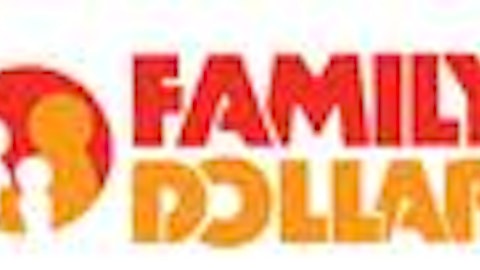There is a big hype now surrounding Wal-Mart Stores, Inc. (NYSE:WMT). The story du jour is that the giant retailer might be losing sales to competitors due to a thin workforce unable to keep store shelves stocked. While the company increased its store count by 13% over the last five years, the number of employees fell 1.4% – leading to less customer service. This seemingly important piece of news caught the headlines and made various rivals from the retail sector extremely happy.

The right way to look at news
It’s always important to keep in mind that news, in whatever form, are at a conjunction of two very important financial biases – the “availability bias,” and the “recency bias.” The former refers to our natural tendency to overweigh evidence that comes easily to mind. This could be recent evidence or what we perceive as meaningful events. The later emphasizes the tendency of investors to extrapolate recent events into the future indefinitely.
Both biases cause us to be less focused on the big picture and more on minor, marginal events. They are nothing but a mere distraction from actual facts and into the land of speculation, greed and fear.
When we read such a headline about Wal-Mart Stores, Inc. (NYSE:WMT), we tend to forget what a fantastic company Wal-Mart Stores, Inc. (NYSE:WMT) is, and begin to think how to get out fast.
Not the first time
Back in December 2012, The New York Times wrote a lengthy expose on Wal-Mart Stores, Inc. (NYSE:WMT)’s bribery scandal in Mexico. According to the reporters, bribes were paid to win permission to open new stores quickly, and may have totaled more than $24 million. Apparently, senior management was involved in this fiasco from the very start. The minute this report was released, shares of Wal-Mart Stores, Inc. (NYSE:WMT) lost about 8%, shaving about $20 billion off the company’s market cap.
Terrible news, right?
Well, yes – but only to those shareholders who were rushing for the exit. Shares of the company recouped their early losses and advanced by more than 20% since the story broke out.
The best of the best
Wal-Mart Stores, Inc. (NYSE:WMT) isn’t just another retailer. It is the retailer. It’s a cash flow machine with low debt and extremely consistent earnings. In fact, it’s regarded as such a safe play that it recently was able to secure a billion dollar bond offering maturing on 2018, at a measly 1.125%. That’s an amazingly low rate. As of this writing, it trades at a forward P/E of only 13 and price/sales of 0.5. That’s fairly cheap for such a retail giant with proven records.
Costco Wholesale Corporation (NASDAQ:COST) is a much inferior candidate to the mighty Walmart. Costco Wholesale Corporation (NASDAQ:COST) trades at a rich P/E of 21, while maintaining an operating margin of only 2.8%. Walmart’s operating margin is slightly above 6%. That’s more than double in favor of Walmart. Target Corporation (NYSE:TGT), on the other hand, enjoys favorable metrics that are similar to Walmart’s. But Target Corporation (NYSE:TGT) has been suffering lately from a severe decline in sales and loss of store location in favor of other rivals.
Neither company can compete with Walmart on price. Walmart’s discount nature is the major element that led it to become a $220 billion company. Since Walmart is roughly 3 times the size of Target and Costco combined, it greatly benefits from economies of scale – distribution channels, store locations and cheap merchandise are just a few of the things that Walmart outperforms other rivals.
How to take advantage of this fear
You can go and buy shares outright in the open market or you can sell put options on the underlying asset (shares of Walmart). Specifically, you can sell the May $75 puts for $1.44.
A Fool’s view
Walmart has always been an outstanding company in the retail sector. Its dominance, distribution channels and appealing prices place it in the center stage of retail. There isn’t any news announcement that can change that.
Shmulik Karpf has no position in any stocks mentioned. The Motley Fool recommends Costco Wholesale. The Motley Fool owns shares of Costco Wholesale.

